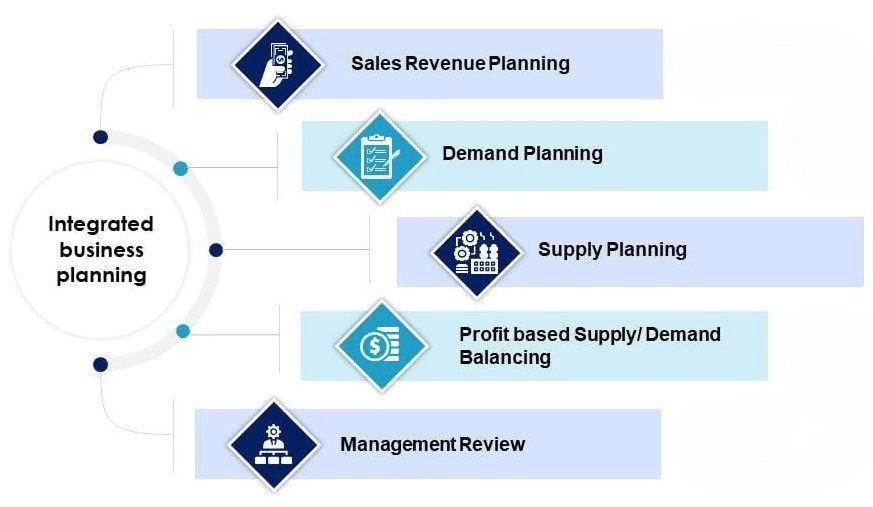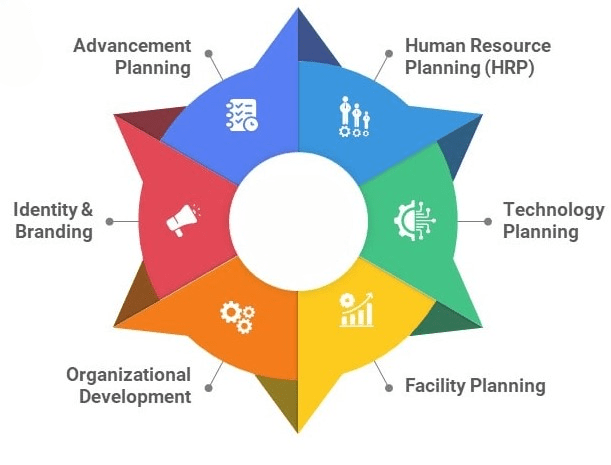
- What is an Integrated MBA?
- Duration and Structure of an Integrated MBA
- Eligibility Criteria for Integrated MBA
- Top Colleges Offering Integrated MBA
- Pros & Cons of Integrated MBA
- Subjects Covered in Integrated MBA
- Career Opportunities with an Integrated MBA
- Industry Acceptance of Integrated MBA
What is an Integrated MBA?
An Integrated MBA is a comprehensive management program that combines undergraduate and postgraduate studies into a single course, typically spanning five years. Designed for students who have completed their higher secondary education (10+2), this program offers a seamless academic journey from foundational business concepts to advanced management practices. Unlike the traditional route of pursuing a bachelor’s degree followed by a two-year MBA, the Integrated MBA saves time and provides early exposure to managerial education, leadership training, strategic thinking, and even complementary professional add-ons like PMP training which many students now consider to boost their project management capabilities early on. The curriculum is interdisciplinary, blending subjects such as economics, accounting, marketing, operations, and human resource management, along with soft skills and industry-relevant projects. This structure helps students develop a strong conceptual base and gain practical experience through internships, case studies, and live projects. Integrated MBA programs are ideal for students with a clear interest in business and management, offering a focused, holistic, and industry-aligned education. Many top institutions and universities globally and in India, such as IIM Indore and IIM Rohtak, offer Integrated MBA programs, with growing demand from both students and employers for well-rounded professionals who appreciate structured learning and early exposure to managerial competencies, including PMP Training for project-oriented roles.
To Explore PMP in Depth, Check Out Our Comprehensive PMP Certification Training To Gain Insights From Our Experts!
Duration and Structure of an Integrated MBA
- Total Duration 5 Years: The Integrated MBA course duration is five years (ten semesters), allowing students to complete both UG and PG degrees without any gap or re-application.
- Primary Division: UG + PG Phases: The first three years focus on primary undergraduate concepts like economics, business communication, and quantitative skills. The final two years focus on core MBA subjects like finance, marketing, HR, and operations.
- Semester-Wise Curriculum: The Integrated MBA structure follows a semester system, ensuring continuous learning and evaluation through a mix of theory and practical components.
The Integrated MBA program is a five-year full-time course designed for students after completing their 10+2 education. It combines both undergraduate and postgraduate studies seamlessly, offering an in-depth understanding of business and management principles. The structure of the Integrated MBA is carefully designed to build a strong foundation in the early years and gradually move toward advanced management education. With a mix of core subjects, electives, internships, and projects, the Integrated MBA structure ensures holistic development. Many students also look up to industry guides such as a 15 Years Experienced Consultant Carrying Career Shift to understand how early management education can shape long-term growth and career direction.

- Industry Internships: Most Integrated MBA programs include internships during summer breaks, providing hands-on exposure and industry insights early in the academic journey.
- Capstone Projects & Research Work: In the final year, students work on capstone projects or conduct primary research on business challenges. applying their learning in real-world scenarios.
- Elective Specializations: The Integrated MBA structure offers flexibility in the PG phase, allowing students to specialize in areas such as finance, marketing, or analytics based on their career goals.
Eligibility Criteria for Integrated MBA
The eligibility criteria for an Integrated MBA are designed to admit students who have completed their higher secondary education and have a strong interest in business and management studies. Generally, candidates must have passed the 10+2 level or equivalent examination from a recognized board with a minimum aggregate of 60%, though this can vary across institutes. Some top colleges may also require entrance exams like IPMAT (for IIM Indore and IIM Rohtak), SET, or other university-specific tests. The Integrated MBA eligibility criteria often include proficiency in English and basic quantitative aptitude, as these skills are essential for success in the program. Many students choose this path early because it offers clarity and direction toward stable management careers and helps them understand the Best Career Options After MBA while still progressing through the coursework. Reserved category candidates may receive relaxation in the minimum percentage required, depending on institutional policies. Age limits, if any, are usually defined by individual colleges offering the program. Along with academics, some institutes also evaluate communication skills, logical reasoning, and general awareness through written tests or interviews. Meeting the eligibility criteria for an Integrated MBA is the first major step toward entering this comprehensive five-year management program, which provides early exposure to business education and prepares students for future leadership roles.
Are You Preparing for PMP Jobs? Check Out ACTE’s Project Management Interview Questions & Answer to Boost Your Preparation!
Top Colleges Offering Integrated MBA
- IIM Indore (Indian Institute of Management Indore): IIM Indore is one of the leading institutions offering the Integrated MBA program. Their IPMAT exam is a gateway for admission, and the program is renowned for its academic rigor and industry connections.
- IIM Rohtak (Indian Institute of Management Rohtak): IIM Rohtak offers a 5-year Integrated MBA program that combines business fundamentals with advanced management training. Admission is through the IPMAT exam, focusing on analytical and reasoning skills.
- NMIMS Mumbai (Narsee Monjee Institute of Management Studies): NMIMS offers a Dual Degree Integrated MBA program, combining undergraduate and postgraduate management studies. It is known for its strong industry ties and high placement records.
The Integrated MBA program is offered by several prestigious institutions across the globe, providing students with a seamless transition from undergraduate to postgraduate management education. These colleges offer a comprehensive curriculum, world-class faculty, and excellent placement opportunities. Many students also explore resources like the Best MBA Colleges in India list to compare top institutions and understand which campuses provide strong Integrated MBA pathways. If you’re looking to pursue an Integrated MBA, here are some of the top colleges that offer this unique and valuable program:
- UPES Dehradun (University of Petroleum and Energy Studies): UPES offers a specialized Integrated MBA program with industry-specific focus areas such as energy, infrastructure, and business analytics, preparing students for niche sectors.
- Shiv Nadar University (Greater Noida): Shiv Nadar University provides a 5-year Integrated MBA course that focuses on developing leadership and managerial skills through interdisciplinary learning.
- Bennett University (Greater Noida): Bennett University offers a robust Integrated MBA program designed to provide students with a global perspective, offering both academic excellence and exposure to real-world business challenges.
- Business Economics: Understanding the economic environment is crucial in management. The Integrated MBA covers micro- and macroeconomics to help students understand market structures, economic policies, and global trade.
- Accounting and Finance: Subjects such as financial accounting, managerial accounting, and corporate finance are taught to provide a solid foundation in financial management, critical for decision-making and resource allocation.
- Marketing Management: The Integrated MBA program includes comprehensive marketing courses covering consumer behavior, marketing strategies, advertising, and digital marketing, preparing students for roles in business promotion and market research.
- Human Resource Management: Students learn about employee relations, recruitment, performance management, and organizational behavior, which are essential for managing a company’s human capital effectively.
- Operations and Supply Chain Management: This subject introduces students to the basics of production management, logistics, inventory management, and the optimization of business operations for efficiency.
- Business Ethics and Corporate Governance: The Integrated MBA program also includes courses on business ethics, corporate social responsibility, and governance, ensuring students are prepared to lead businesses with integrity and responsibility.
Are You Interested in Learning More About PMP? Sign Up For Our PMP Certification Training Today!
Pros & Cons of Integrated MBA
The Integrated MBA program offers numerous advantages but also comes with a few challenges that prospective students should consider. One of the main pros is the seamless academic progression from undergraduate to postgraduate studies, saving students time and effort compared to pursuing separate degrees. This program offers early exposure to management education, which can accelerate career growth and increase employability. Many institutions also encourage value-added certifications like PMP training helping students strengthen their project management skills. With a structured curriculum, students gain a comprehensive understanding of business concepts and specialized areas like finance, marketing, and HR. The Integrated MBA often includes internships and industry exposure, providing real-world experience that employers highly value. However, there are some cons to keep in mind. The program is intense, requiring students to commit to a five-year study path, which may limit flexibility in exploring different career options. Some students may find it challenging to stay engaged in business studies from the start, especially without room to explore other disciplines. Since the program merges undergraduate and postgraduate learning, the pace can be demanding, and early specialization may not be possible. Overall, the Integrated MBA is ideal for focused individuals committed to a management career, but it may not suit those seeking more diverse academic choices.

Subjects Covered in Integrated MBA
The Integrated MBA program offers a comprehensive curriculum that blends both undergraduate and postgraduate subjects, providing students with a strong foundation in business and management. The program is designed to equip students with theoretical knowledge and practical skills in various areas of management. Many students also explore topics like Why Choose an MBA Abroad as they compare global opportunities while studying management fundamentals. Here are some of the key subjects covered in the Integrated MBA program:
Career Opportunities with an Integrated MBA
An Integrated MBA opens up a wide range of career opportunities across finance, marketing, HR, operations, consulting, and more. With strong business and management fundamentals, graduates step into roles like business analyst, marketing manager, financial analyst, HR manager, and operations manager. The program also supports entry into growing fields such as data analytics, supply chain, and digital marketing. While learning core concepts, students also understand the Nature Of Managerial Economics Importance helping them make smarter business decisions. Companies value the early exposure and practical training offered by the Integrated MBA, giving graduates a clear edge in the job market. Internships and industry projects strengthen professional networks and build real-world experience. Many students also explore entrepreneurship, supported by the program’s focus on leadership and problem-solving. Overall, the Integrated MBA provides strong career growth, whether in multinational companies, government roles, or new ventures.
Are You Considering Pursuing a Master’s Degree in PMP? Enroll in the PMP Masters Program Training Course Today!
Industry Acceptance of Integrated MBA
The Integrated MBA program has strong industry acceptance due to its comprehensive curriculum and early exposure to business education. Companies across finance, marketing, consulting, and operations value Integrated MBA graduates for their mix of theoretical knowledge and practical skills. The program builds a solid management foundation and makes students job-ready from day one. Many institutions now encourage certifications like PMP training to further sharpen project management abilities. Internships, industry projects, and real-world exposure ensure students understand practical business operations, which employers highly appreciate. Top organizations also value the seamless transition from undergraduate to postgraduate learning, helping graduates enter the workforce earlier. High placement rates and increasing demand from top institutions highlight the program’s relevance in today’s evolving business landscape. Whether in large companies or startups, the Integrated MBA opens strong career opportunities and helps graduates stay competitive in the job market.

